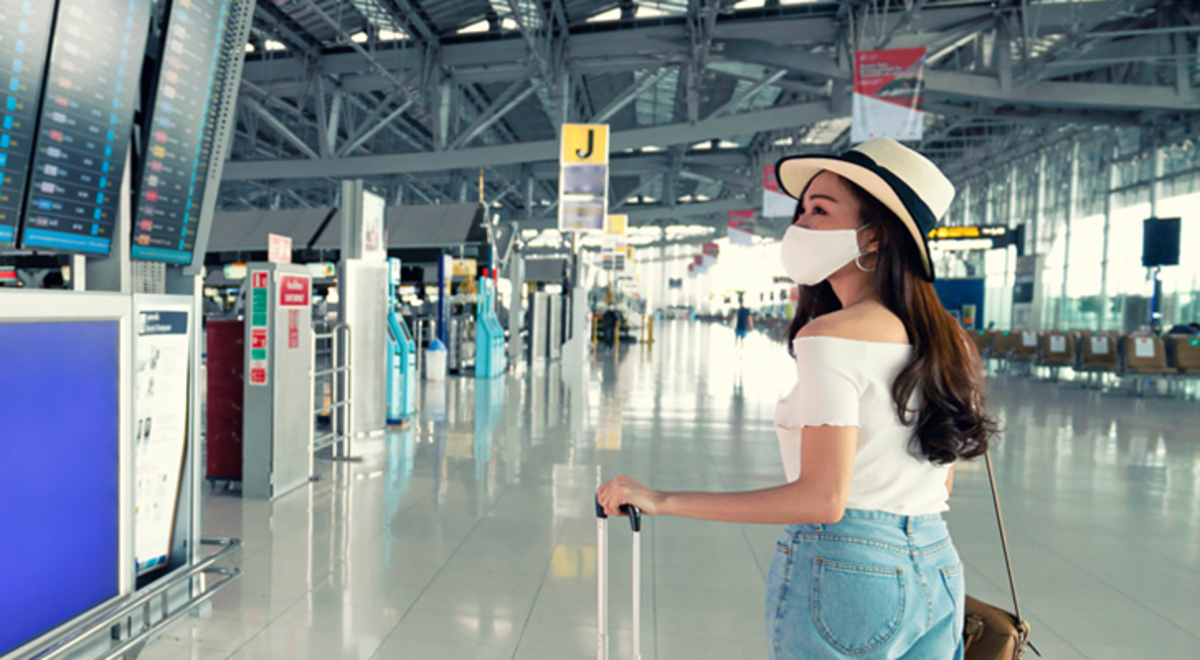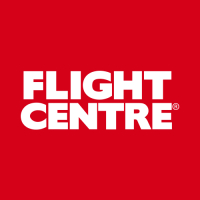
If you've been missing travel as much as we have, we're sure you'll be itching to hit the road as soon as we're able. While the regulations allowing for overnight stays within one's province were unfortunately hastily backtracked, we're not giving up hope. Now is the perfect time to book and plan those bucket list South African gems you've been meaning to explore.
When we do hit the road or skies once again, ensure you're prepared. The foreseeable future of travel looks very different to how it did pre-lockdown.
Here is the Flight Centre’s team approved advice on how you can travel South Africa safely when we're able to hit the road or the skies:
Getting to the airport
On public transport or in your Uber, wear your face mask, open the windows and handle your luggage yourself.

Allow for extra time at the airport
You don't want to be rushed or miss your flight because you haven't made provision for the extra time needed to pass through all the new health and safety checks. Be patient and expect longer queues.
Your temperature will be taken before you're even allowed to enter the terminal building. Note that only travellers, with valid tickets and necessary documentation, will be allowed to enter terminal buildings.
Scan your boarding pass. Use mobile boarding passes instead of getting them printed at the airport. Passengers will be required to scan their boarding passes when going through security and at the boarding gates. Show your ID documentation to airport personnel but don't hand it over. You'll also need to pack your luggage into the security trays.
Onboard the flight
Know that the boarding and check-in process will take longer. Airports and airlines have implemented stringent protocols to minimise the number of the people in the terminal and onboard (such as strategically seating passengers) and enforce social distancing.
On the plane, avoid touching surfaces wherever possible. Research has shown that onboard transmission of the virus is low; however be reassured that airlines have implemented rigorous cleaning between each flight; disinfecting the cabin and frequently touched surfaces with approved disinfectants in line with World Health Organisation protocols. It certainly doesn't hurt to wipe down surfaces again so bring wipes or tissues to use with your hand sanitiser and bring a few ziplock bags to discard the used wipes in until you can safely dispose of them.
Wear a mask. Mask wearing is compulsory in all public spaces, so you'll need to keep your mask on throughout the airport and flight.
Check-in at your accommodation
The hospitality and tourism industry have implemented some of the most stringent health and safety protocols to ensure customer and staff safety.
Expect:
• Temperature scans upon entering premises and compulsory hand sanitiser.
• Complete and sign a health questionnaire.
• Staff training on COVID 19 preventative measures with educational signage for staff and guests.
• PPE for staff where necessary.
• Social distancing in public areas.
• No more buffet.
• Dining areas allowing for social distancing (at least 1.5 metres) and limited to a maximum number of people at any given time (currently 50 people maximum).
• Guests are encouraged to opt for room service if they feel more comfortable doing so.

General recommendations
Don't go anywhere without travel insurance. Yes, even on a local trip, travel insurance is recommended.
Your travel expert will be able to advise on other necessary regulations and protocols relating to your travels.
Plan ahead. Pre-book accommodation and plan a rough itinerary (at least where you're sleeping each night).
Check what facilities, parks and attractions are open. Call ahead to check that any attractions you'd like to visit are open. Be sure to confirm opening hours to avoid disappointment.
Check government regulations before travelling as these are subject to change.
What to pack
• Hand sanitiser and a few alcohol wipes, ensuring the alcohol content is above 60%.
• Reusable face mask plus a spare, as well as a small packet of laundry detergent to wash the mask after each use.
• Pen - expect to have to sign a few more forms, health questionnaires, hotel check-in forms, etc. than before. Bring your pen.

Are you travelling for business?
*Essential business travel is currently allowed for intra and interprovincial travel. Don't forget your documentation. Business travellers need a travel permit on company letterhead, signed by all parties, to access the airport terminal building. If you don't have the necessary permits, you won't be allowed to access the airport, let alone board the flight.
*As of July 13 July 2020, only essential business travel is permitted. Overnight stays for intraprovincial leisure travel is not currently allowed according to Government regulations.


